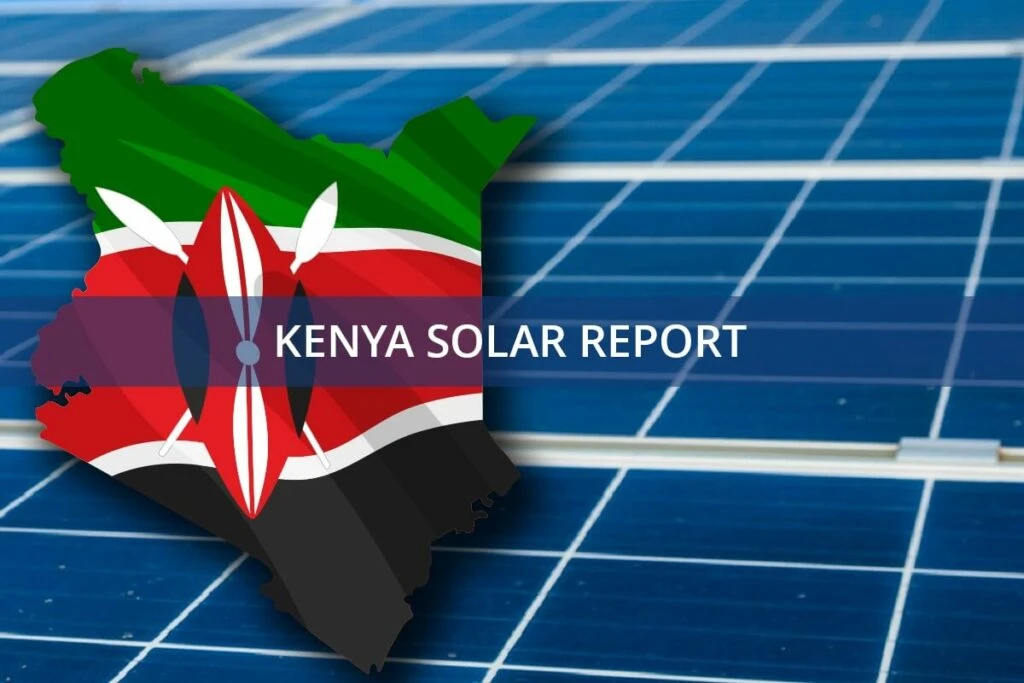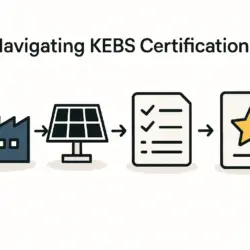Kenya is spearheading a global initiative to establish credible carbon credits by linking them to solar energy projects, a move designed to significantly reduce greenhouse gas emissions. The country’s President, William Ruto, introduced this plan at the UN Climate Ambition Summit in New York, aiming to restore international confidence in carbon credits as a legitimate and powerful tool for fighting climate change.
The Solar carbon credits Kenya Project Initiative
Kenya’s President William Ruto has unveiled an innovative plan to establish credible carbon credits by connecting them directly to solar energy projects. At the UN Climate Ambition Summit in New York, President Ruto announced that Kenya would co-chair and lead a pilot program to create a regulated, high-integrity market for carbon credits generated from solar projects.
This initiative is a direct response to the growing need to restore confidence in carbon credits as a reliable tool for combating climate change. The global carbon market, projected to reach nearly $6.3 trillion by 2034, has faced valid criticism for issues like a lack of transparency, double-counting, and insufficient benefits for local communities.
Kenya’s pioneering approach seeks to address these challenges head-on. By tying carbon credits to tangible renewable energy sources like solar power, the system becomes inherently more transparent and accountable. The pilot project will use solar energy to generate electricity, with the resulting carbon credits sold in a regulated marketplace, ensuring their legitimacy and impact. This is expected to set a new global precedent, promoting renewable energy and encouraging the development of similar high-integrity projects worldwide.
International Support for Solar carbon credits Kenya Energy Projects
The urgency of this initiative was underscored by UN Secretary-General António Guterres, who highlighted the severe impacts of rising global temperatures and emphasized the need for immediate, decisive action. He praised Kenya’s leadership in driving global climate initiatives and amplifying Africa’s voice in climate finance.
This solar carbon credit project is a key component of the broader Kenya solar power growth strategy. With over 70% of its electricity already derived from renewable sources, Kenya is actively working to attract more investment in solar energy, which is not only cheaper and more environmentally friendly than fossil fuels but also crucial for enhancing the nation’s energy security.
The country’s deep commitment to renewables is evident in its substantial investments in hydropower, geothermal, wind, and solar. These efforts are driven by a stable policy environment and strong government incentives, which are key factors driving expansion in Kenya’s solar energy sector. The country’s National Energy Policy outlines ambitious targets, including expanding renewable capacity and promoting electric vehicles.
The Solar Energy Project Initiative is poised to attract significant investment, creating jobs and reducing Kenya’s carbon footprint. For investors, the country presents a fertile environment, making it an opportune time to consult a solar manufacturing guide for Kenya to understand the economic landscape. The project’s success could serve as a powerful model for a just transition, demonstrating how climate action can deliver tangible community benefits and encourage similar initiatives globally.
Kenya’s Wider Climate Initiative for Solar carbon credits Kenya
Kenya’s leadership in climate action extends beyond this single project. The nation was instrumental in organizing the Africa Climate Summit in Nairobi, which focused on renewable energy, climate finance, and sustainable development. The summit aimed to foster a unified African approach to climate change, positioning the continent as a key player in global climate solutions.
The outcomes from the summit are expected to shape Africa’s unified position at upcoming global conferences like COP30, where nations will negotiate further commitments to reduce greenhouse gas emissions. This is part of a wider African effort to leverage climate action for development, which includes initiatives like the Tropical Forests Forever Facility.
Kenya’s efforts to establish credible carbon credits through solar energy projects represent a significant step forward in the global fight against climate change. By linking carbon credits to renewable energy, Kenya is not only promoting sustainability but is also championing a transparent and equitable model for others to follow. This focus on green manufacturing infrastructure and verifiable climate action showcases the innovation happening across the continent, often highlighted at events like the upcoming 10th Solar Expo in Nairobi.
If you are interested in the technical and financial aspects of launching a solar enterprise, consider exploring our free e-course on solar panel manufacturing.



